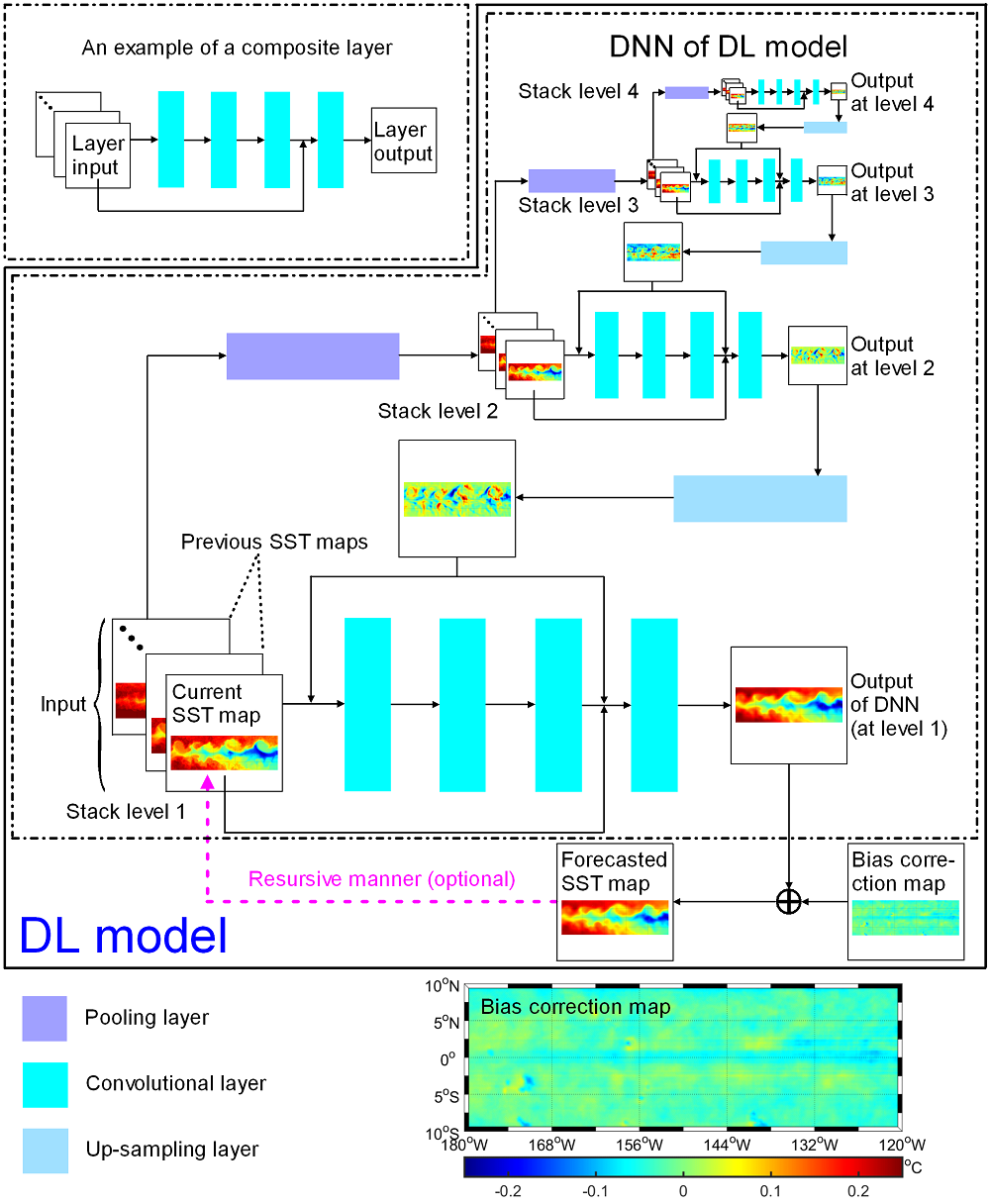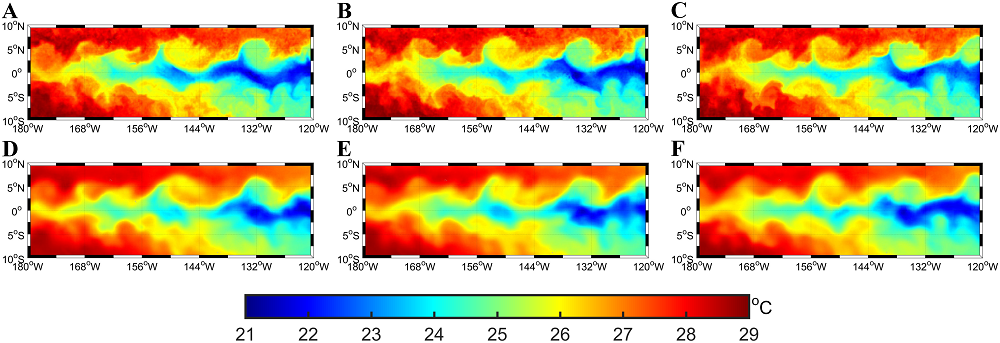News
Recently, Zheng Gang, an associateresearcher at the State Key Laboratory of Satellite Ocean Dynamics, took thesea surface temperature field associated with tropical unstable waves as anexample to develop the artificial intelligence prediction model driven bysatellite remote sensing big data for complex ocean phenomena of thousand-kilometer scale in ocean -atmosphere system. The paper "Purely satellitedata-driven deep learning forecast of complicated tropical instabilitywaves" was published in Science Advances, a sub-Journal of Science,and promoted by EurekAlert!, a global Internet news service, hosted by theEnglish website of the Chinese Academy of Sciences and AAAS. In this article,associate researcher Zheng Gang was the first author, Li Xiaofeng, researcherof the Institute of Oceanology of the Chinese Academy of Sciences and IEEEFellow, was the corresponding author. The collaborators also includedresearcher Zhang Ronghua of the Institute of Oceanology of the Chinese Academyof Sciences and Dr. Liu Bin of Shanghai Ocean University.

Asa new and most influential data mining method in the field of artificialintelligence, deep learning has achieved remarkable success in many fields thatare superior to traditional methods; the big data trend of ocean satelliteremote sensing provides "data" fuel for driving the application ofdeep learning in the ocean field. The result establishes a deep learningforecast model of multi-scale network structure. The model only takes thecurrent and past tropical unstable wave and sea surface temperature fields asinput to output the sea surface temperature field in the future. The model isdirectly driven by satellite remote sensing data, avoiding complicatedprocesses such as physical equations, model approximation and parameterizationof numerical modeling, and huge computer resource requirements. The long-termtest results of 9 years (2010-2019) data show that the model efficiently andaccurately predicts the complex evolution process of the tropical unstable wavesea surface temperature field, and successfully captures the temporal andspatial characteristics of tropical unstable wave propagation.

Theresearch shows that in the context ofbig data, it is reliable and feasible to establish complex ocean-atmosphericphenomenon models and forecasting methods through ocean information miningdriven by pure data based on artificial intelligence, and has broad applicationprospects; the method framework complements the advantages of traditionalnumerical models, the combination of which is expected to become a new paradigmfor the study of complex ocean-atmospheric phenomena.



